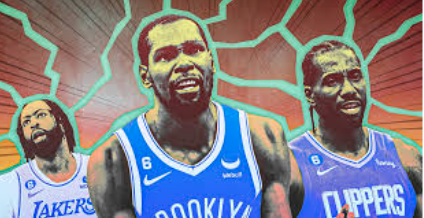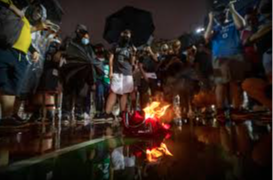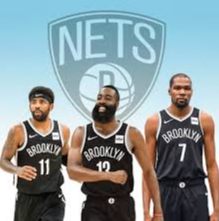When the Super Team Stopped Being Super
The NBA’s most hyped formula for success has officially run out of magic.
It really comes down to three things: chemistry, ego, and money.
“Super team.” Remember when that used to mean something? It used to be the kind of headline that made your phone light up, made us fans lose our minds, and changed the league overnight. For years, the NBA felt like every superstar was coming together to form juggernaut teams that looked unbeatable on paper. Every offseason, it felt like someone was making the next “big move.” But lately, that magic has faded. The truth is simple: super teams aren’t working anymore. The hype’s gone, the results aren’t there, and the league has moved on. But, the question that is still around is why?
People burning LeBron James’ jersey after the decision
Super teams have been around longer than people think. The first real one happened way back in 1968, when Wilt Chamberlain joined Jerry West and Elgin Baylor on the Lakers. That move shocked the league. Three all-time greats teaming up for one goal: to win it all. But nobody called it a “super team” back then. The term didn’t even exist. Then we fast forward to 2010, and the idea exploded. LeBron James, the face of the NBA, stood in front of cameras and said he was “taking his talents to South Beach.”
It was the decision that changed the whole NBA and the way teams think about players who are entering the final years of their contracts. Fans burned jerseys, sports media lost its mind, and suddenly, the NBA became a game of alliances. Then, just when people thought it couldn’t get crazier, Kevin Durant joined the already stacked Golden State Warriors in 2016. This was right after the Warriors went 73-9 and were deemed the greatest team in NBA history. Then the following offseason they got the greatest scorer ever to join their team. That move broke basketball for a while. The Warriors were so good, the league felt pointless. They were untouchable. Everyone else was just playing for second place. For a while, super teams ruled. LeBron got his rings. Durant got his. Every team wanted to copy that formula. If they just loaded up on stars and chased the championship they would win. But those teams started to crumble, one by one.
The idea was simple. Put as much talent on one roster as possible and let the stars handle the rest. But that logic hasn’t worked in a long time. The 2018 Thunder, 2021 Clippers, 2022 Lakers, 2022 Nets, and 2024 Suns all tried it. Every single one failed. They had names and had hype. But when it came time to actually win, they fell apart. Meanwhile, the teams that weren’t chasing headlines started winning. The Nuggets built around Jokic and a tight, balanced roster. The Bucks built patiently around Giannis. Last year’s champions weren’t a “super team” they were a team built the old-fashioned way: one superstar surrounded by guys who knew their roles and played them perfectly. The last time a super team actually won it all was seven years ago. Since then, we’ve seen the same story play out again and again. Big names, big expectations, disappointing ending.
It really comes down to three things: chemistry, ego, and money. Chemistry is the biggest one. You can’t fake it. You can’t buy it. Teams need time to grow together, to figure out how to play as one unit. Super teams skip that part. They throw stars together and hope it clicks overnight. But basketball doesn’t work like that. Even the 1992 Dream Team, the best collection of talent ever, lost a scrimmage to a bunch of college players because they hadn’t figured out how to play together. Keep in mind that this is a team with 11 Hall of Framers or literally the whole roster with the likes of Michael Jordan, Magic Johnson, and Larry Bird, along with Charles Barkley, Patrick Ewing, Karl Malone, Chris Mullin, David Robinson, Scottie Pippen, John Stockton, and Clyde Drexler. Then there’s ego. Big names come with big egos. Everyone wants the ball, everyone wants the spotlight. And when everyone’s used to being “the guy,” you end up with conflict instead of cohesion. And finally, money. The NBA’s salary cap makes it nearly impossible to pay a bunch of stars without sacrificing depth. You end up with a top-heavy roster and a weak bench. The moment one player gets injured, the whole team collapses. We’ve seen it happen over and over. The Nets’ Big Three barely played together just 16 games, the 2012 Lakers fell apart, and the Clippers have been nothing but “what-ifs.”
The ultimate goal in basketball is to win the championship.
The teams that are winning now do things differently. They’re not hunting for the biggest names; they’re building rosters that make sense. They develop their young guys, make smart trades, and find players who fill specific needs instead of chasing headlines. Guys like Jrue Holiday, Derrick White, and Aaron Gordon aren’t the flashiest names, but they’re exactly the kind of players who help you win a championship. Nowadays everyone in the league can score. It’s not the Jordan era where Jordan could score 50% of the team's points. What separates the winners now are the teams that defend, hustle, and sacrifice their egos for the team. That’s what wins in this new era.
Super teams used to make the NBA feel like an event. Now, when a new one forms, people barely react. We’ve seen too many fail to believe in the idea anymore. You can’t just chase a ring; you have to earn it. Championships aren’t for sale, and no matter how much money you have to spend you can’t buy chemistry or heart. With the Suns missing the playoffs and the Clippers bowing out early again, it’s clear: the sun has set on the super team era. The league has shifted. Depth beats star power. Chemistry beats talent. And the teams that took the time to build from the ground up are finally getting rewarded. The NBA is back to being what it should be: competitive, unpredictable, and earned. You can’t skip the grind anymore. The age of the super team is over and honestly, it’s about time.





